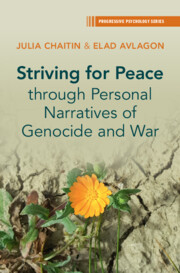Refine search
Actions for selected content:
192 results
From co-speech actions to co-speech gestures? Effects of visibility and information structure on cross-modal synchronization
-
- Journal:
- Language and Cognition / Volume 17 / 2025
- Published online by Cambridge University Press:
- 28 November 2025, e85
-
- Article
-
- You have access
- Open access
- HTML
- Export citation
1 - Memory and imagination
-
- Book:
- The Prompts You Need to Help You Write the Book You Want to Write
- Published online:
- 25 October 2025
- Print publication:
- 06 November 2025, pp 1-14
-
- Chapter
- Export citation
4 - Dialogue
-
- Book:
- The Prompts You Need to Help You Write the Book You Want to Write
- Published online:
- 25 October 2025
- Print publication:
- 06 November 2025, pp 47-63
-
- Chapter
- Export citation
11 - Editing
-
- Book:
- The Prompts You Need to Help You Write the Book You Want to Write
- Published online:
- 25 October 2025
- Print publication:
- 06 November 2025, pp 138-166
-
- Chapter
- Export citation
INDICATIONS OF DIALOGUE IN ARISTOTLE’S PROTREPTICUS
-
- Journal:
- The Classical Quarterly , First View
- Published online by Cambridge University Press:
- 27 October 2025, pp. 1-20
-
- Article
- Export citation

The Prompts You Need to Help You Write the Book You Want to Write
- Practical Exercises for Fiction Writers
-
- Published online:
- 25 October 2025
- Print publication:
- 06 November 2025
Underuse of the Override
-
- Journal:
- Canadian Journal of Law & Jurisprudence , First View
- Published online by Cambridge University Press:
- 24 October 2025, pp. 1-40
-
- Article
-
- You have access
- Open access
- HTML
- Export citation
18 - Liturgy and Ecumenism
- from Part IV - Liturgy and the Life of the Churches
-
-
- Book:
- The Cambridge Companion to Christian Liturgy
- Published online:
- 19 September 2025
- Print publication:
- 09 October 2025, pp 317-334
-
- Chapter
- Export citation
Chapter 1 - Introducing the Tusculans
-
-
- Book:
- Cicero's <i>Tusculan Disputations</i>
- Published online:
- 11 September 2025
- Print publication:
- 18 September 2025, pp 1-11
-
- Chapter
- Export citation
The Failure of Climate Dialogue: Why Global South Voices Must Be Climate Talk Leaders
- Part of
-
- Journal:
- Public Humanities / Volume 1 / 2025
- Published online by Cambridge University Press:
- 04 August 2025, e118
-
- Article
-
- You have access
- Open access
- HTML
- Export citation
2 - Dialogue Literature
- from Part I - Approaches and Evidence
-
-
- Book:
- The Cambridge Companion to Christian Heresy
- Published online:
- 17 July 2025
- Print publication:
- 31 July 2025, pp 33-53
-
- Chapter
- Export citation
Chapter 7 - Vulnerability, Dialogue, and the Limits of Autonomy
- from Part IV - The Limits of Autonomy and Self-Rule
-
-
- Book:
- Platonic Autonomy
- Published online:
- 07 August 2025
- Print publication:
- 31 July 2025, pp 149-168
-
- Chapter
- Export citation
1 - ‘Wo sind wir?’ Tristan Disorientations
- from Part I - Orientations
-
-
- Book:
- Wagner Studies
- Published online:
- 17 April 2025
- Print publication:
- 24 April 2025, pp 9-27
-
- Chapter
- Export citation
Social epistemology for individuals like us
-
- Journal:
- Episteme , First View
- Published online by Cambridge University Press:
- 11 April 2025, pp. 1-23
-
- Article
-
- You have access
- Open access
- HTML
- Export citation
8 - New Horizons of Mediation
- from Part III - Legal Metamorphosis?
-
- Book:
- Vanishing Legal Justice
- Published online:
- 20 March 2025
- Print publication:
- 03 April 2025, pp 164-172
-
- Chapter
- Export citation

Striving for Peace through Personal Narratives of Genocide and War
-
- Published online:
- 22 February 2025
- Print publication:
- 13 February 2025
Chapter 4 - Conceptualizations of Positive Peace and Reconciliation
- from Part I - Theoretical Background of the Book
-
- Book:
- Striving for Peace through Personal Narratives of Genocide and War
- Published online:
- 22 February 2025
- Print publication:
- 13 February 2025, pp 60-79
-
- Chapter
- Export citation
Driving policy dialogue on health technology assessment in Eastern Europe and Central Asia: reporting from an initiative of Health Technology Assessment International
-
- Journal:
- International Journal of Technology Assessment in Health Care / Volume 41 / Issue 1 / 2025
- Published online by Cambridge University Press:
- 06 February 2025, e12
-
- Article
-
- You have access
- Open access
- HTML
- Export citation
Chapter 5 - The British Novel of Ideas in an International Context
- from Part II - 1900–1945
-
-
- Book:
- The British Novel of Ideas
- Published online:
- 05 December 2024
- Print publication:
- 12 December 2024, pp 99-119
-
- Chapter
- Export citation
Chapter 6 - H. G. Wells
- from Part II - 1900–1945
-
-
- Book:
- The British Novel of Ideas
- Published online:
- 05 December 2024
- Print publication:
- 12 December 2024, pp 120-133
-
- Chapter
- Export citation
